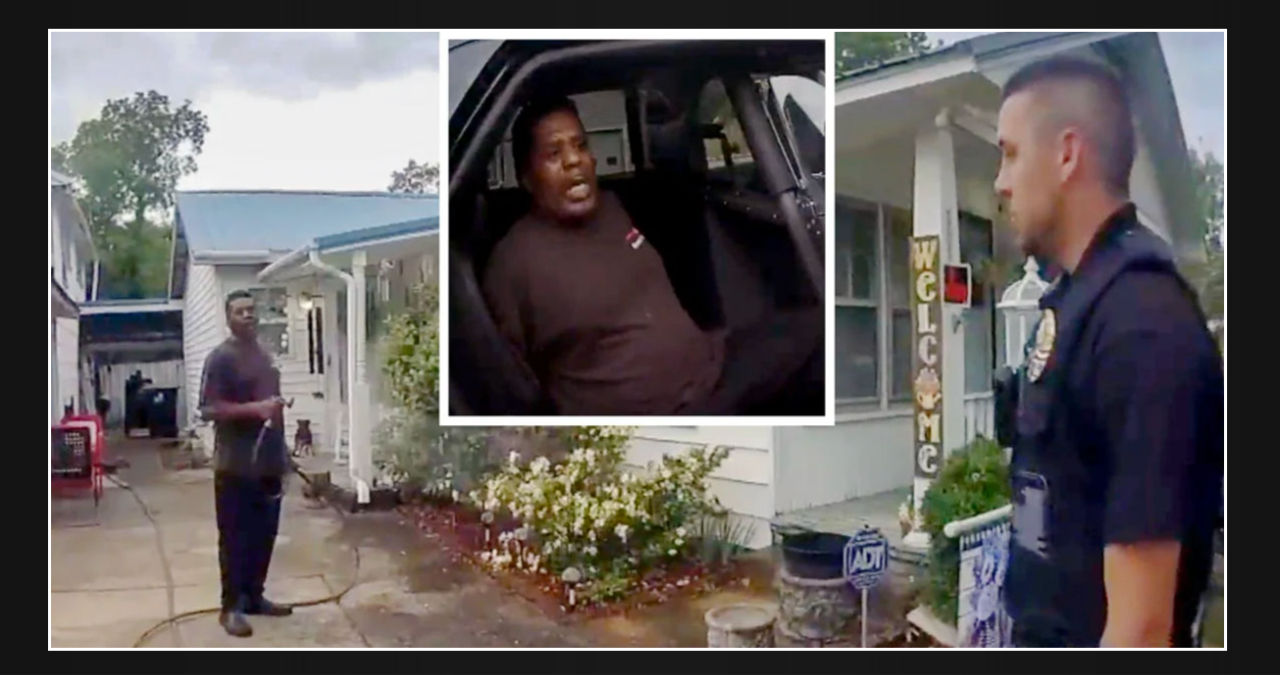As Michael Jennings, a Black pastor from Childersburg, Alabama, tended to his neighbor’s flowers, he found himself in a confrontational situation with police officers. They approached him and insisted on seeing his identification, alleging that his actions were “suspicious.”
Jennings, a former police officer himself, was well aware of his constitutional rights. Thus, he firmly declined to provide his identification to the officers. Instead, he confidently stated that he was “Pastor Jennings” and resided across the street. Jennings further explained that he was simply watering his neighbor’s plants while they were away. In a bold move, he even challenged the police to arrest him.
But when Jennings lodged a lawsuit, an Alabama judge dismissed it citing qualified immunity. This legal doctrine shields law enforcement officers from lawsuits, even if they make unlawful arrests, unless the specific constitutional right violated has been clearly established by previous court rulings.
In a surprising turn of events, the appellate court came to a unanimous decision last week, ruling against the lower court’s judgment. They determined that the police had no valid reason to arrest Jennings, effectively reviving his lawsuit and enabling it to move forward.
“According to Pastor Jennings’ attorney, Harry Daniels, he will finally have the opportunity to present his case in court and demonstrate that wearing a badge does not grant anyone the authority to disregard the law,” said Daniels to The Associated Press.
The three-judge panel of the 11th U.S. Court of Appeals determined that the police officers had violated clearly established law, citing a previous court decision. As a result, they are not entitled to qualified immunity.
According to Jennings, his arrest was not a result of his refusal to provide the three pieces of information, but rather because he chose not to present physical identification. Jennings cites the case of Edger v. McCabe, 84 F.4th 1230 (11th Cir. 2023), to support his argument.
Jennings wasted no time in doing exactly that as soon as they arrived.
The Call
This Article Includes [hide]
Amanda expressed her concern when she noticed a younger Black male outside the residence, considering that the occupants were an elderly white couple.
After Jennings was arrested and seated in the back of the patrol car, Amanda admitted to the police that she had made a mistake.
In the body camera video, the woman admits that the situation is likely her fault and speculates that her neighbor would be tending to their flowers at that time.
However, the police officers insisted on taking him to jail regardless.
One of the police officers informed the wife of the pastor, stating that although she acknowledges it as a mistake, he has already incurred the charge.
“We cannot reverse the act of arresting someone once we have taken him into custody.”
The Lower Court
The lower court dismissed Jennings’s lawsuit, stating that the police had probable cause to arrest him due to his failure to identify himself.
Within seconds of the police’s arrival, he promptly identified himself, provided his address, and explained his activities, as previously stated.
The police officers insisted on seeing his physical identification to run a check for any bench warrants. Nevertheless, Jennings firmly refused to provide his identification.
“I was watering the neighbors’ flowers when I noticed a Black man approaching me,” he recounted. “I firmly believe that unless I have done something suspicious or wrong, no one has the right to approach me. I made it clear to him that I am a pastor, serving at a church.”
Even though Amanda insisted that she had made an error, he still ended up being incarcerated.
One of the police officers confirmed that it was his words that led to his arrest, saying, “You talked your way into going to jail.”
After a span of nine days, the charge of obstructing justice was ultimately dropped, giving him the opportunity to file his lawsuit. In his legal action, he alleges that the police violated his First Amendment rights by arresting him in retaliation for his words, as well as infringing upon his Fourth Amendment rights, which protect citizens from unreasonable seizures and searches.
U.S. District Judge R. David Proctor dismissed the lawsuit, stating that the police had probable cause to arrest him. According to the judge, a savvy criminal could easily pick up a watering hose to use as a ruse when approached by officers.
The appellate court held a different viewpoint, however.
The ruling states that although it is always advisable to cooperate with law enforcement officers, Jennings was not legally obligated to provide his ID.
‘A Badge Does Not Give You the Right’: Court Sends Message to Alabama Cops Who Thought They Could Get Away with Arresting Black Pastor for Watering His Neighbor’s Plants
In a powerful message that highlights the importance of accountability, a court in Alabama has made it clear that being a police officer does not grant one the authority to act unjustly or unfairly. The incident in question involved the arrest of a black pastor who was simply watering his neighbor’s plants.
The court’s decision serves as a reminder that no one is above the law, regardless of their profession or title. It sends a strong message to those who abuse their power and discriminate against individuals based on their race.
This case is not an isolated incident, but rather a reflection of a larger issue of racial bias and discrimination within law enforcement. It is essential that we continue to address and challenge these systemic injustices to ensure a fair and just society for all.
The court’s ruling is a significant step in the right direction towards holding police officers accountable for their actions. It serves as a precedent for future cases and sends a clear message that unjust arrests and racial profiling will not be tolerated.







Leave a Reply